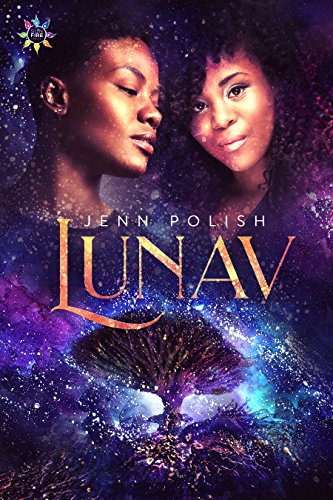Reviewed by Jess
AUTHOR: Jenn Polish
PUBLISHER: NineStar Press
LENGTH: 243 pages
RELEASE DATE: March 26, 2018
BLURB:
They don’t have dragons where half-faerie Sadie was born—not living ones, anyway—but in the Grove, everyone knows dragon eggs grow on trees like leaves and need Dreams to hatch. Without faerie Dreams, the dragons won’t survive. And neither will anyone else.
Brash, boyish sixteen-year-old Sadie uses her half-human status to spy on the human monarchy, who’ve made it illegal to Dream. But spying is a risky business. Still, Sadie thought she was a pro until they sent a new human magistrate to the Grove. Evelyn.
Evelyn might be the most beautiful girl Sadie’s ever seen, and Sadie might be betraying her family by falling in love with the ruthless leader who locks them up. But that’s not even the biggest obstacle between the two: Evelyn is leading the charge against Dreaming, and there’s something she doesn’t know.
Sadie can still Dream.
REVIEW:
This book is a denser and more mature type of fairy tale than a lot of what we expect in YA fiction. It’s complex and political, and often, the teenage characters feel much older than they actually are. There are a lot of compelling and clever aspects to the world of Lunav, but it lacked the cohesion and character depth that could’ve made it truly excellent.
On a romance level, Sadie and Evelyn’s relationship is pretty much the definition of the “enemies to lovers” trope. In fact, halfway through the book, I wasn’t convinced that their tenuous bond could survive all the drama unfolding. But Evelyn really blossomed as a character in the latter half and I like how her motivations came to light as secrets were revealed. On the other hand, I never got a great hold on Sadie as a character. We know a lot about her—her family, her past, her anger towards the oppressive government. But despite these details, I felt like we never got to truly know her as a character, which prevented her romance with Evelyn from really clicking with me.
I found myself more invested in the setting and worldbuilding than in the specific characters. Lunav is an original and unique world that we’ve never really seen before. This definitely isn’t a tired retread of fairy tale and fantasy tropes. I was instantly interested in the bonds between the fairy people, their trees, and their dragons—and how their culture was stripped from them. There are a lot of real-world parallels and the story is only enriched by the ways it mirrors our own society.
There’s a glossary of worldbuilding terms included at the end of the book, but I’d take a look at it before you start reading. This story is dense with very particular language and phrasing that wasn’t always explained very well and left me puzzled long into the book. For example, the term “growns” is used for faeric parents, but until I learned that from the glossary, I thought it was a catch-all term for elders. Since these terms are used very often, I wish their meaning was made clearer through context so we could match them to terms we’re already familiar with. We have to be able to relate to fantasy to really enjoy it.
This is on the long side for a YA book, and it was a slow read for me. Not a surefire hit, but also not a book without some really interesting stuff going on.
RATING:
BUY LINKS:


